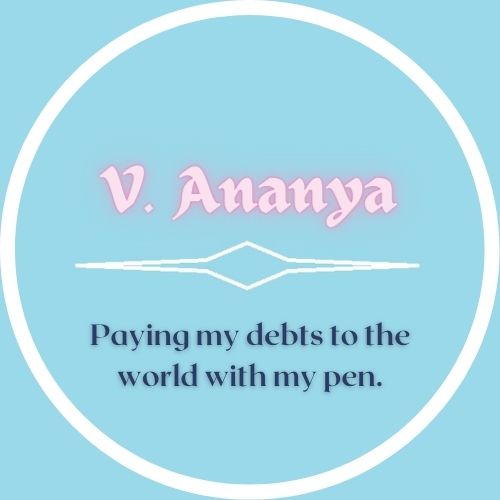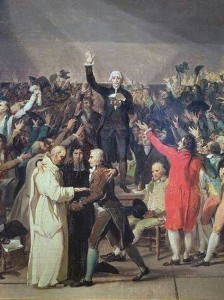On 26 January every year, Indians celebrate Republic Day. For this year, I wrote a poem about it on my main blog that you can find here. It is based on my knowledge and research about the nationalist movement and the independence and post-independence period of Indian history. Now, in this History blog, I'm going... Continue Reading →
My Opinion About Introducing English in India
As a historian, this is just an opinion: Maybe Lord Macaulay introduced English in India with some foresight that English would become a global language. Think about it. He introduced English in India somewhere between 1835 and 1840. What was the position of Britain at the time? It had more or less the whole world... Continue Reading →
Fun Historical Facts About India!
Everybody in the ancient world knew about the natural numbers - 1 to 100. Even the Romans came up with symbols for them - I to C. But it was Aryabhatta, an ancient Indian mathematician, who invented and implemented the concept of "Zero", the most useful one that the entire world uses even to-day! The... Continue Reading →
Did You Know…? The French Revolution
What is a revolution? Perhaps readers with Science background would reply that the course of the Earth around the Sun is called a revolution. However, in History, the term takes on a whole different meaning. The Merriam-Webster dictionary defines a revolution as “a sudden, radical, or complete change” and “a fundamental change in political organization”.... Continue Reading →
Historical Personalities in Short: Mary, Queen of Scots
Mary, Queen of Scots is one of the most famous queens of Europe. Her story is the most fascinating and controversial in History. She is not to be confused with Mary I, Queen of England, also known as "Bloody Mary"; Mary I was the daughter of Catherine of Aragon and Henry Tudor, the half-sister of... Continue Reading →
Moment of Truth #4 – It Wasn’t Really All That Long Ago
A few examples to show you how things in the past did not happen "way back in the past". They happened very recently and we're still reeling from the effects of some of them.
Balkanatolia – A New Continent Rediscovered?
A new old continent possibly discovered, one that had species not known today.
History: Indus Valley Civilisation
One might wonder how the world would have looked like to-day if Britain never invaded and colonised so many areas across the world. Would the natives still have been able to install railways and telephones? Would they think of preserving ancient artefacts that they happened to find rather than use them for themselves? Would they... Continue Reading →
Ancient Civilisations: The Indus Valley
Know all about a lost Civilisation here!
One might wonder how the world would have looked like to-day if Britain never invaded and colonised so many areas across the world.
Would the natives still have been able to install railways and telephones? Would they think of preserving ancient artefacts that they happened to find rather than use them for themselves? Would they have discovered ancient civilisations on their own and be able to tell the world about them?
I like to think they could, but I have serious doubts about Indians – from what I have observed, most of them seem to not give a shit about their past; instead, they want what’s on the other, seemingly greener side. Or maybe they would’ve been a little more concerned than that.
To-day, I am here to tell the world about a certain civilisation that was discovered accidentally by a British soldier in South Asia, in a land that…
View original post 669 more words
History: Rajaraja Chola I
When students of India hear about the Chola Dynasty, the first person that comes to their mind is its most famous ruler, Rajaraja Chola I. It is easy to assume that he was the first ruler of the dynasty, but in fact, he was not; he was about the fourth or the fifth ruler! Below... Continue Reading →
The French Revolution – Part 2 | The Rebellious 18th Century #1
Finally, almost a year later, I managed to complete and publish Part 2 of “The French Revolution”!
Next up is a little break from “The French Revolution” to learn some concepts in History. So stay tuned!
Continuing from Part 1 of the French Revolution (1789).
Before going on, very sorry for the late post. More than late, actually……. I had a lot of things on my plate!
“Man is born free; and everywhere he is in chains.” – Jean-Jacques Rousseau wrote in his book, “Social Contract“.
It’s a book that explains the theory of state-formation – a contract between the state (government) and the people… but that’s not what we’re here to learn to-day. I’ll gladly post about the various theories of state-formation another time – they’re very interesting!
But to-day, we’re here to know Part 2 of the French Revolution.
18th Century French population under the king was divided into three estates, according to their financial abilities:

And that’s where the issue started.
Also, with people like Rousseau, one of the greatest intellects of Europe at the time… and maybe all time.
View original post 1,073 more words
The French Revolution – Part 1
[The following article is part of the Rebellious 18th Century series from my History blog.] The French Revolution was one of the most prominent events known in the history of the world, particularly Europe. It had a profound impact in that continent specifically and also, the effects and impact spread over to every country outside,... Continue Reading →
A Brief History of English Literature
Look at how English literature originated on “Parchments of the Times Past”!
A Brief History of English Literature
English literature is the study of literature written in the English language, irrespective of the origin of the work produced. The most notable English writers that we all know are William Shakespeare, Mark Twain, Jane Austen, and Arthur Conan Doyle, among many others. To-day, English has become a universal language and there are many writers of the language in countries other than Britain.

The origin of English literature goes as far back as 5th-7th centuries CE. It was at this time that the Anglo-Saxon settlers brought the English language to the British Isles, from a region now known to be western Germany. The English language is a West Germanic language that originated from Anglo-Frisian dialects. This displaced the Celtic language, which had been prevalent here till then. “Beowulf”, an earliest form of literature, was considered to have…
View original post 233 more words
Parchments of the Times Past: All You Want to Know About YOUR Past!
Hi!
Come, check out my third blog! I just started it a few days ago and would really appreciate it if you could check it out! “Parchments of the Times Past” is a History-themed blog, where I’ll be posting small research-work that I keep doing from time-to-time.
Hello! I’m Avalon Greene from “EvolutionaryHues” and “Ava’s Quill and Parchment”.
This is officially my third blog, “Parchments of the Times Past”. It’s a thematic blog – all about History, if you didn’t already understand from the title.
In this blog, I shall be posting my small research articles about events in History, right from the ones you’ve heard a lot about to ones you never had. If that interests you, you could stay behind, click on that tiny yet significant follow button below, and start learning History as I know it. Who knows, maybe it’ll help you in that pop-quiz your teacher/professor might suddenly spring on you?
I promise you’ll have a lot of fun here at Parchments of the Times Past. I shall have some fun and interesting content to come out with every week and you can tell me whether it’s factually right or…
View original post 61 more words
Did You Know…? The Mighty Roman Emperor Nero
Ciao! 🙂 I am sure that every one of you is more than familiar with the Roman Empire and its imperialist expansion for over two centuries. Well, this "Did You Know...?" article is about the fifth Roman Emperor, the great Nero. I have completed a short course on the History of the Roman Empire and... Continue Reading →
Did You Know…? Mary, Queen of Scots
Mary, Queen of Scots married Francis, Dauphin of France, with whom she had been engaged to since her infancy. She was fifteen and he was fourteen. However, he died two years later. Mary had married twice since then. Queen Mary loved her first husband, Prince Francis, so dearly that she had written a poem about... Continue Reading →
Did you Know…? Queen Victoria
Queen Victoria (1819-1901) was dubbed the "Grandmother of Europe". She married Prince Albert of Germany. Their nine children married the children from various nobles and royal families, including Russia. So far, Queen Victoria was the longest-reigning monarch, having ruled 64 years. She was so committed to her husband that, when Albert died, she became very depressed... Continue Reading →














